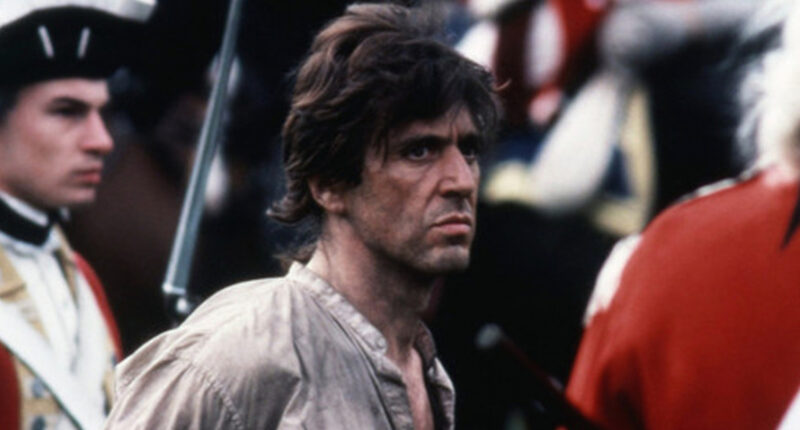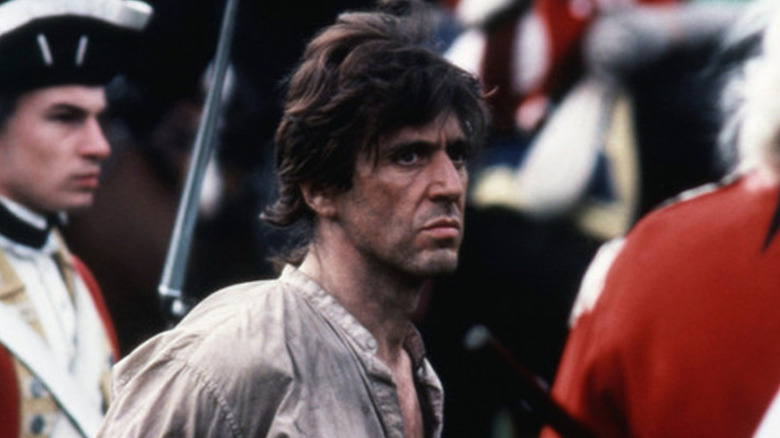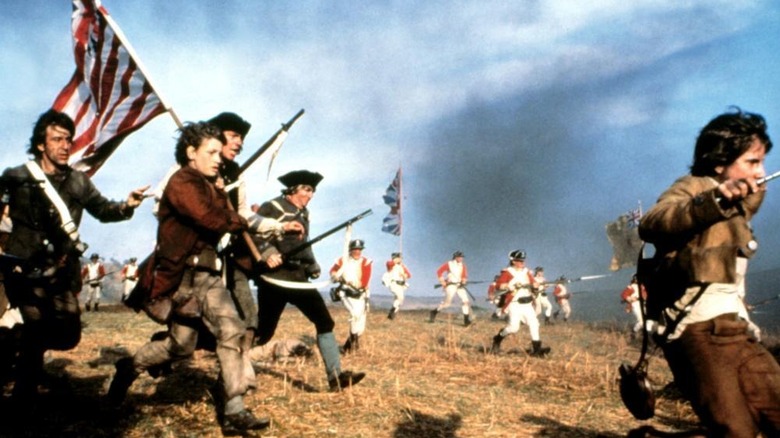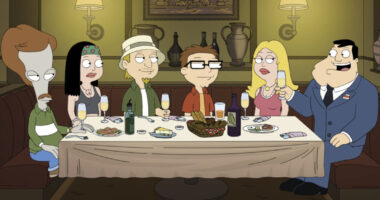Share this @internewscast.com
Al Pacino, a legendary actor with over 66 films to his name, first captured audiences and critical acclaim with his iconic role as Michael Corleone in “The Godfather.” However, his film “Revolution,” now available on Tubi, might not be as familiar to fans of his more renowned works like “Scarface” or “The Devil’s Advocate.” For those who enjoy historical dramas and are curious to see Pacino in a unique role, “Revolution” can add interest to an otherwise dull afternoon, despite its grim themes.
Set during the Revolutionary War, “Revolution” follows the story of Tom Dobb (Pacino), a fur trapper and recent immigrant to America. Dobb finds himself caught in the turmoil of war when his teenage son, Ned (played by Sid Owen and Dexter Fletcher), is drafted into the Continental Army as a drummer boy. After losing his money to a rowdy mob, Tom enlists to stay close to Ned and protect him.
Throughout the film, Tom and Ned endure severe hardships and face numerous challenges as they strive to establish a life in their new homeland. While their journey finds resolution, the film itself took a much longer route to redemption.
Upon its initial release in 1985, “Revolution” was met with harsh criticism and became infamous as both a critical and financial disaster, even earning several Razzie Award nominations. However, the film began gaining a better reputation years later, following the release of a reedited version by Warner Bros.
Director Hugh Hudson revisited the film for its home release, making significant changes by trimming the runtime, replacing the originally happy ending with an open one, and incorporating new narration by Pacino. This revised edition, titled “Revolution Revisited,” was released on DVD in 2009 and received a more favorable response. Nevertheless, some critics argued that the film’s casting, including Pacino’s ambiguous accent, remained a point of contention that even the recut could not fully address.
Revolution’s rocky start gave way to a cultural reappreciation
When the updated version was released in the U.K. as part of a double-disc set, it included an essay by critic Philip French, who praised the film as an overlooked masterpiece unfairly dismissed by audiences and critics alike. Whether seen as a hidden gem or a Razzie-winning film worth exploring, “Revolution” offers a compelling cinematic experience.
Director Hugh Hudson edited the film for home release, shortening it, excising its original happy ending for an open one, and adding fresh narration from Al Pacino. Dubbing this version “Revolution Revisited,” it hit DVD in 2009. The revamped movie did garner a more positive reception, though some claimed its casting — including Pacino’s, which involved an accent that sounded almost Irish and almost Brooklyn, but didn’t lean enough in either direction — was a problem that no recut could surmount.
When this version of the movie hit the U.K. in a double-disc release, its booklet included an essay from critic Philip French, who declared the movie an underappreciated masterpiece ignored by the public and castigated unnecessarily by the press. Whether it’s a crowning achievement or simply a Razzie-winning movie that’s actually worth watching, it’s still a compelling outing.











